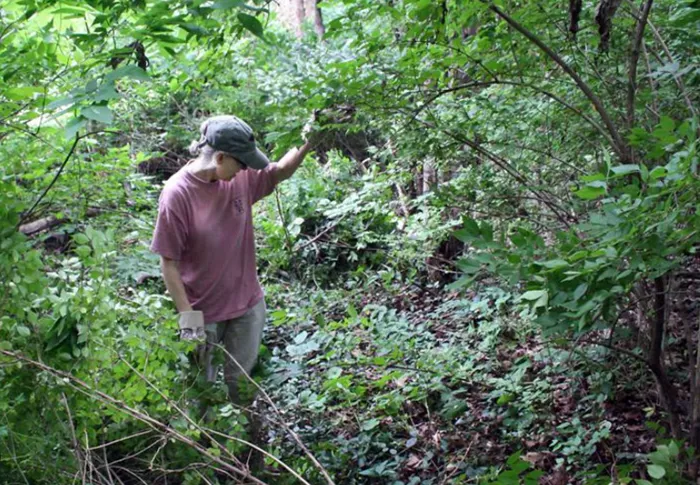Anantnag, Jammu and Kashmir – For over two decades, Manzoor Javaid, a government school lecturer, has transformed his passion for nature into a thriving herbal garden, now home to more than 100 medicinal plant species. This garden, which includes rare plants known for their healing properties, has become a valuable resource for natural remedies, including those used to treat serious diseases such as cancer.
Javaid, a former State Nodal Officer for the School Herbal Garden Scheme in Jammu and Kashmir, is widely known as the “Herbal Man of Kashmir.” His garden, located in the Achabal area of south Kashmir’s Anantnag district, is a testament to his dedication. “This herbal garden is the result of 20 years of hard work,” Javaid explained. “We have gathered seeds from different regions, focusing on plants with medicinal properties. The garden now houses over 100 species, and we plan to expand further in the coming seasons.”
The collection includes a mix of rare vegetables such as Chinese cabbage, wild garlic, and Swiss chard, as well as a variety of medicinal plants. Notable species include *Taraxacum officinale* (dandelion), known for its liver benefits, and *Valeriana wallichiana*, which has antidepressant properties. Other plants in the garden include oregano, lemon balm, lavender, rosemary, and *Elsholtzia ciliata* (Eila Gassa), all recognized for their health benefits. Additionally, Javaid cultivates *Bistorta affinis*, used to treat bleeding and ulcerative colitis, and *Taxus wallichiana*, a plant known for its anti-cancer properties.
“We are not just growing plants but also creating products like food supplements, nutraceuticals, pickles, oils, and teas,” Javaid said. He highlighted the growing global demand for products derived from medicinal plants, especially in the supplements market.
Looking ahead, Javaid is focused on promoting herbal cultivation as a viable career option for the local population. He plans to collaborate with both government and private institutions to raise awareness about herbal farming and its potential as an employment opportunity. “This can be a great career path for farmers and young people, whether they want to grow herbs, become entrepreneurs, or get involved in value addition,” he said.
Javaid believes that the herbal sector, following the fruit and tourism industries, holds significant potential for job creation across Jammu and Kashmir. He noted that students are increasingly showing interest in the field, with some already pursuing careers in herbal farming and related industries. He has also worked across Jammu, Kashmir, and Ladakh, promoting the herbal sector.
To further develop this industry, Javaid advocates for the recognition of herbal studies as a vocational subject in schools. He suggests that, much like courses in beautician skills, automobiles, and tourism, the herbal sector should be introduced to students as part of the curriculum. “The herbal sector is closely tied to tourism,” he said, “and promoting it as part of herbal tourism could help attract more visitors to the region.”
Through his efforts, Javaid is not only preserving nature’s healing power but also fostering a new generation of herbal practitioners, contributing to both local economies and global health trends.
Related topics:
- The Irony of Fake Plants: Harmful Copies of Nature
- Growing Community and Fostering Belonging with Native Plants
- Plant Native Seeds Now for a Thriving, Lush Garden All Summer Long


